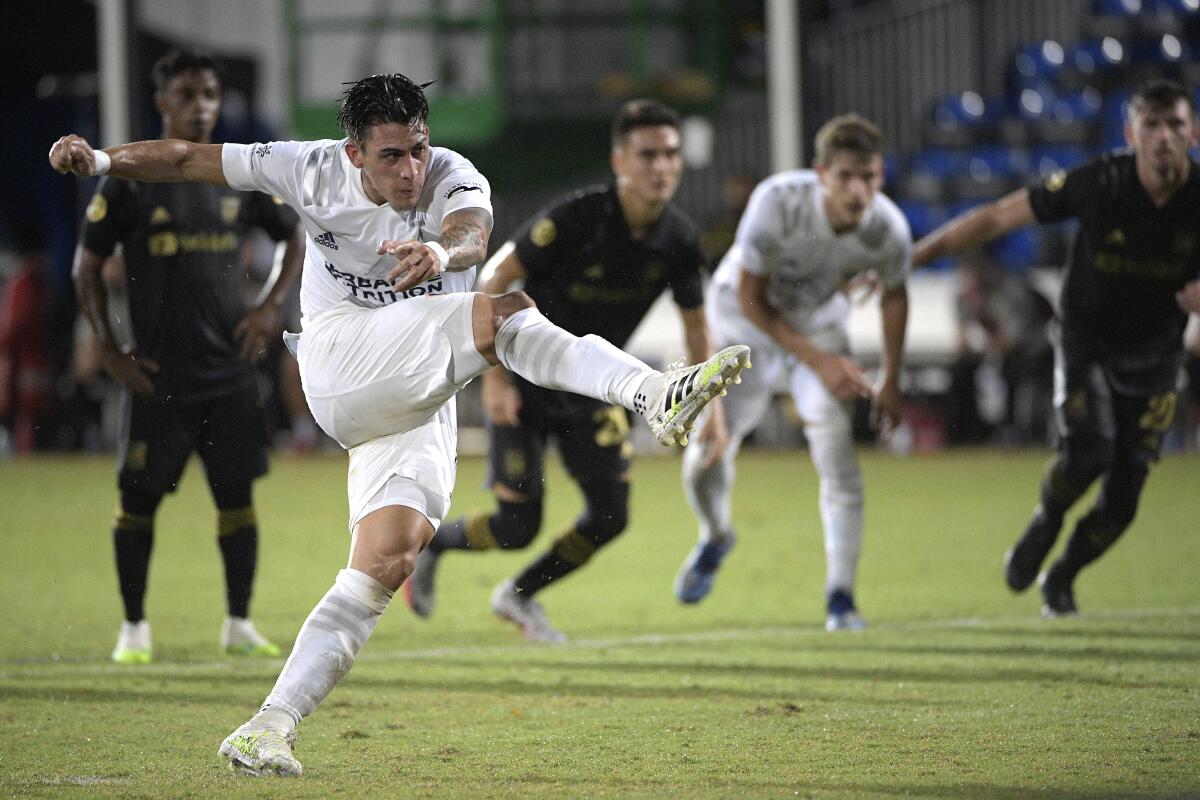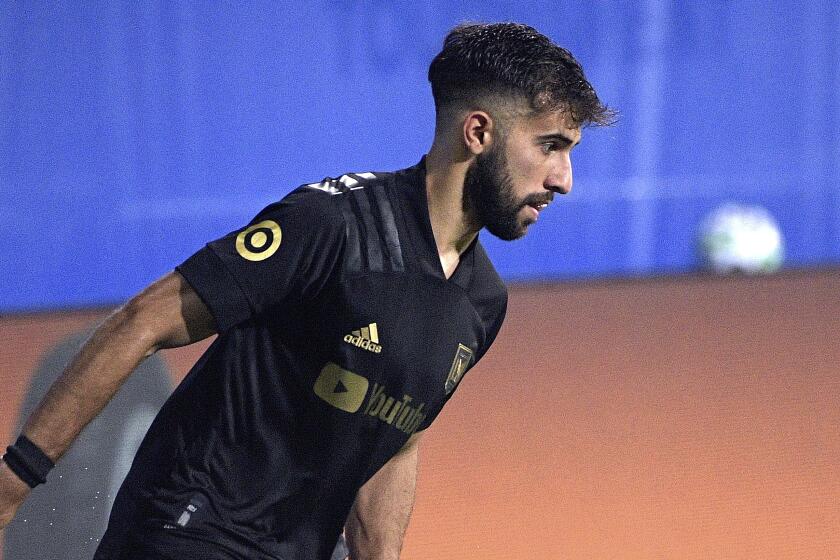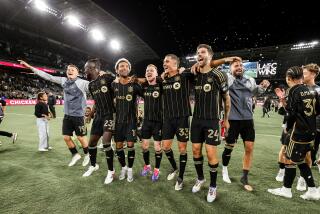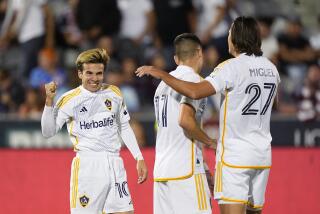It’s a new world of travel in MLS for the Galaxy and LAFC

Nothing has been normal in a Major League Soccer season interrupted by COVID-19. So why should the way MLS teams travel be any different?
When times were normal, teams used commercial flights, arrived the day before a game and generally booked two players to a room. Not now.
In an effort to lessen the risk of contacting the novel coronavirus, MLS has adopted a detailed COVID-19 protocol that has drastically altered what teams do on the road.
The Galaxy will try the new procedures Wednesday when they travel to Portland for their first regular-season road game since the schedule was suspended in March. LAFC, which traveled to Utah and back last week without playing after its match with Real Salt Lake was postponed, will be at home Wednesday, taking a two-game losing streak into its game against San Jose.
Zack Murshedi, who is in his eighth season managing the Galaxy’s travel arrangements, said what normally would be a two-day trip to Portland, Ore., will be completed in about 17 hours.
Galaxy defender Rolf Feltscher arranged for crooner Tony Renis to perform a song with special meaning to his family after the death of his wife’s father.
“We’ll leave in the morning, go to the hotel, have lunch, go to the game, play the game, and then we’ll fly back home,” he said. “For the most part it’s pretty straightforward.”
Making it happen smoothly is far more complex, however. And because a COVID-19 breakout could ruin the rest of the season, the league has left little to chance.
Rather than driving themselves to the airport and waiting for their flight in the terminal, the Galaxy’s 35-person traveling party will meet at Dignity Health Sports Park and ride to the airport in two buses — the extra bus needed to assure social distancing.
The buses will drive onto the tarmac so the players can transfer immediately to a Sun Country Airlines 737-800 plane, which has 30 rows and 187 seats, guaranteeing ample space between players for the 2-hour 15-minute trip. The charter flight is scheduled to leave at 10:30 a.m., and when it gets to Portland two more buses will take the team to a downtown hotel where the players — who must wear masks on the plane, bus and whenever they are in public spaces — will be confined to their rooms apart from a team meeting and lunch.
“It’s pretty strict,” Murshedi said. “It’s basically just stay in your room to limit the exposure.”
It’s also pretty expensive. Round-trip charter flights between L.A. and Portland can cost as much as $80,000, more than four times what it would cost for 35 people to make that trip on a commercial flight. The Galaxy will be spending twice as much on buses and will need twice as many hotel rooms as well.
MLS, Murshedi said, is helping teams with those additional costs.
The setup at the stadiums also has changed, with many teams, including the Galaxy, adopting an Emergency Action Plan (EAP) that allows for the opening of auxiliary locker rooms, doubling the space available to players and providing for social distancing.
The protocols were drawn up while the league was quarantined in a protective COVID-19 bubble near Orlando, Fla., for this summer’s MLS Is Back tournament. The league wanted teams to return from Florida and play in their home markets, which meant travel. But other leagues that tried that — notably Major League Baseball and soccer’s second-tier USL Championship — wound up postponing multiple games when players were infected.
So MLS scheduled only short regional trips for the first six-game phase of its season reboot, allowing players to start and finish game days at home. As a result, LAFC’s longest trip of phase one was Sunday’s 1,110-mile flight to Seattle, while the Galaxy are going no farther than Portland.
With Carlos Vela out because of a knee injury, LAFC falls to the Seattle Sounders, 3-1, for its second consecutive loss.
“Its going to be interesting,” said midfielder Joe Corona of the Galaxy (2-3-2), who take a two-game winning streak to Portland (3-2-2), where they will play on artificial turf for the first time since season. “Our job as players is to adapt to every situation. It’s not easy to travel the same day as you play, but we have to adapt to that.”
After Wednesday’s game, Corona and his teammates will file onto their two buses for the trip back to the airport and the charter flight home. If there are no delays, Murshedi says the players could be at home and in bed by 3 a.m.
“It’s better to sleep in your own bed,” he said. “Everyone prefers that.”








